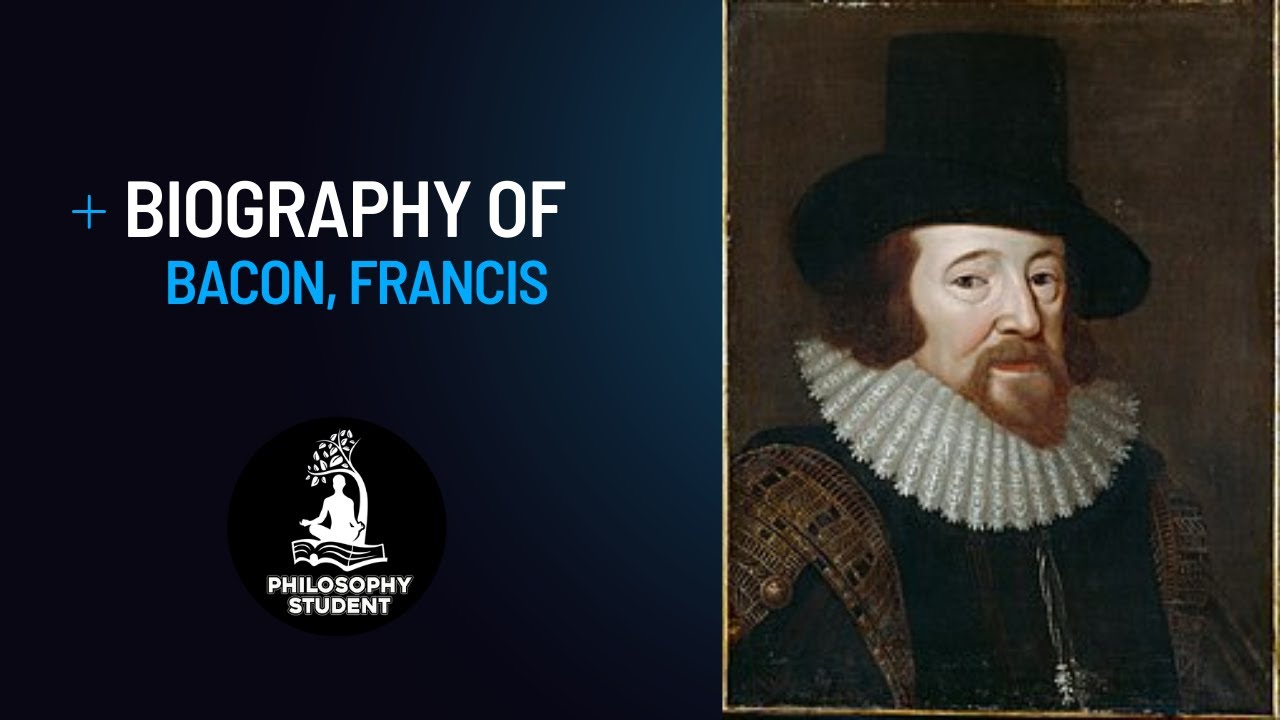Francis Bacon was a giant of natural philosophy and is often called the father of science—or, at least, of scientific methodology. He was also prominent in England’s Jacobean court as a lawyer and member of Parliament, who wrote extensively on legal and political issues
Bacon was born on January 22, 1561, to Sir Nicholas Bacon (Lord Keeper of the Seal) and his second wife, Lady Anne Cooke Bacon, whose father was tutor to Edward VI and a leading humanist. Lady Anne was learned, with a fine command of Greek, Latin, Italian, and French.
After attending Trinity College, Cambridge and—for legal training—Gray’s Inn, London, Bacon tried unsuccessfully to enter politics during the reign of Queen Elizabeth I. He failed here but rose, under James I, to the office of Lord Chancellor. It was in his later years, after he left politics, that Bacon devoted himself exclusively to philosophy and achieved rare renown.
As a natural philosopher, Bacon brought about nothing less than a paradigm shift in Western thought. He found contemporary philosophy to be dogmatic and tradition-bound, slavishly adhering to both Plato and Aristotle. Although Bacon conceded the value of Aristotle’s empirical impulses, he pointed out that the philosopher had failed to create an overarching theory for the conduct of science. More specifically, Bacon criticized Aristotle’s
cosmology as obsolete, but he reserved his sharper criticism for those contemporary philosophers who endorsed Aristotle’s metaphysical approach to natural philosophy at the expense of the empirical. Bacon championed a focus on natural, not ideal, forms and on the effects of natural processes on things.
His master project with respect to knowledge he called the Great Instauration (Instauratio Magna), an act of renewal, which he laid out as a work consisting of six parts:
- The Divisions of the Sciences
- The New Organon; or Directions concerning the Interpretation of Nature
- The Phenomena of the Universe; or a Natural and Experimental History for the foundation of Philosophy
- The Ladder of Intellect
- The Forerunners; or Anticipations of the New Philosophy
- The New Philosophy; or Active Science
The first part was essentially covered in two earlier works, The Advancement of Learning (1605) and a revised edition of De Dignitate et Augmentis Scientiarum (1623). These works described all the sciences and their subdivisions as they existed in Bacon’s own time. His objective was to present the state of science and contrast it to what science should be or become—that is, what was missing and ought to be present.
Part 2 became Bacon’s best-known work, the Novum Organum (“New Organon”), which is devoted to radically reforming the methods of creating knowledge. As a basis for this, Bacon presented both a new epistemology and ontology, Interpretatio Naturae (“Natural Interpretation”). The new logic of research Bacon set forth here was designed to foster understanding of nature, not merely to defeat an opponent in argument. The Novum Organum is the only part of the “Great Instauration” Bacon completed—or, at least, nearly completed.
Part 3, The Phenomena of the Universe, was planned as a natural and experimental history of the “phenomena” of the universe. Bacon’s concept of natural history was narrative as well as inductive. Narratives, based on close observation, were intended to provide the inductive material for empirical research. Bacon appreciated the complexity of nature and believed natural philosophy should explain nature’s complexity rather than create complex philosophical systems. His objective was to use philosophical process to create physical and metaphysical knowledge.
The fourth part, The Ladder of Intellect (Scala Intellectus) was planned to link the method of creating natural history, laid out in Part 3, to Part 6, The New Philosophy; or Active Science. Bacon completed a portion of this work, identifying what he believed was missing in current scientific knowledge and addressing ways of filling the gaps. Even more important, he looked toward a future in which new sciences would be discovered or called for. Bacon aimed science at the new—the newly revealed—and not backward, toward resolving old controversies. Furthermore, he regarded each new empirical discovery as further testament to the glory of God. In this sense, to do the new science was to do God’s work.
In Part 5, The Forerunners, Bacon intended to review the historical adumbrations of the New Science for the purpose of demonstrating that the reformation—the paradigm shift—he hoped to begin would build on aspects of the past and also require time. In the meantime, however, he advanced work on his holistic vision of a natural philosophy system in De Fluxu et Refluxu Maris and Thema Coeli, which are the complete portions of The Forerunners.
The knowledge created by the method outlined in Part 3 was intended to prepare the way for The New Philosophy; or Active Science, Part 6 of the projected Great Instauration. His intention was to write six prototype natural histories but partially completed just three.
Possibly the most important aspect of Bacon’s concept of the New Science was that its aim was not to further what today is called Pure Science but, rather, to foster the creation of Applied Science. Natural science, for him, was applied science, the great importance of which was to improve the lot of humankind. Indeed, he described the inventions he expected empirical science to produce as imitations of divine works. Bacon’s vision of both philosophy and science may, then, be described as startlingly modern, even futuristic.




































